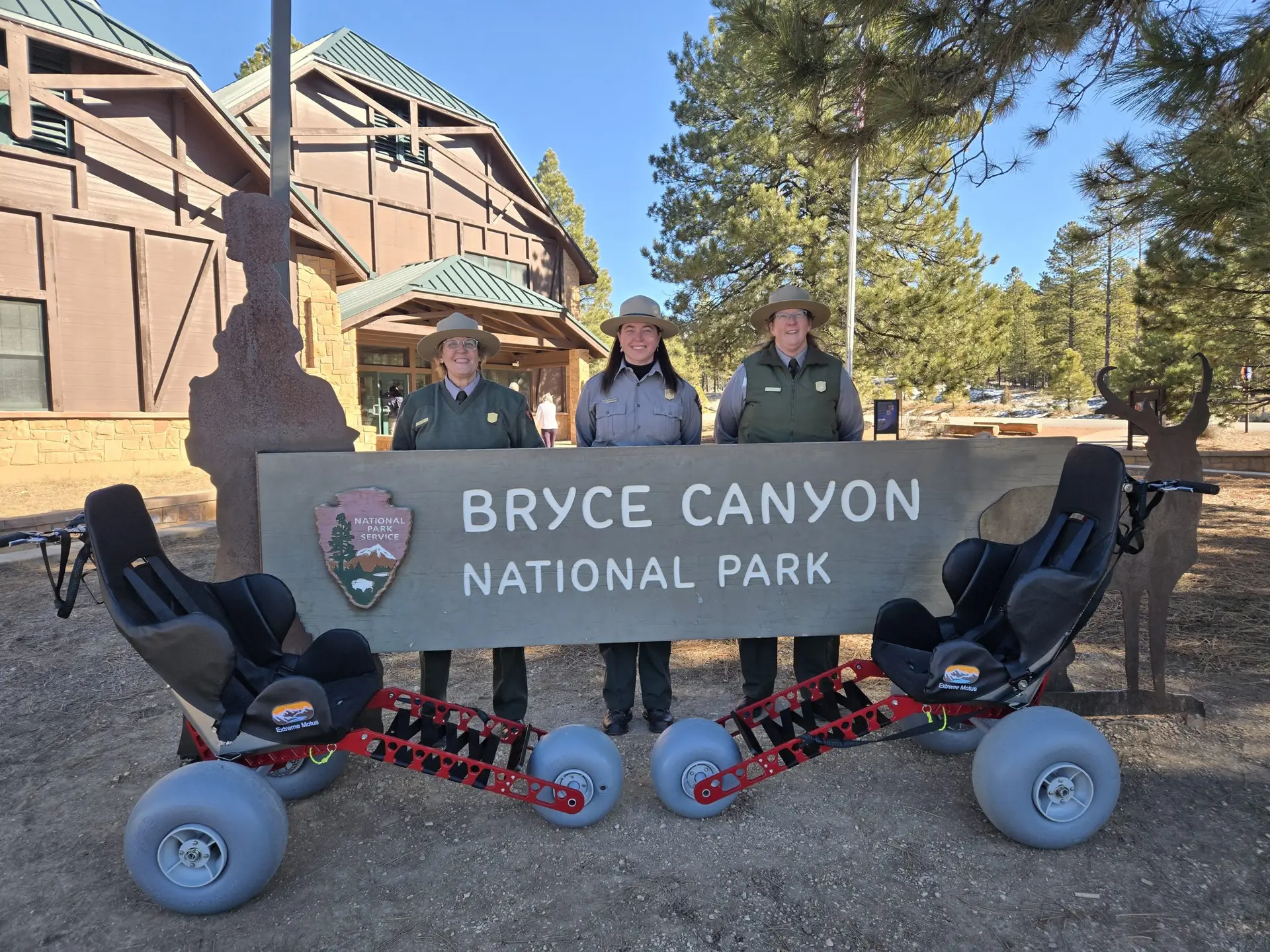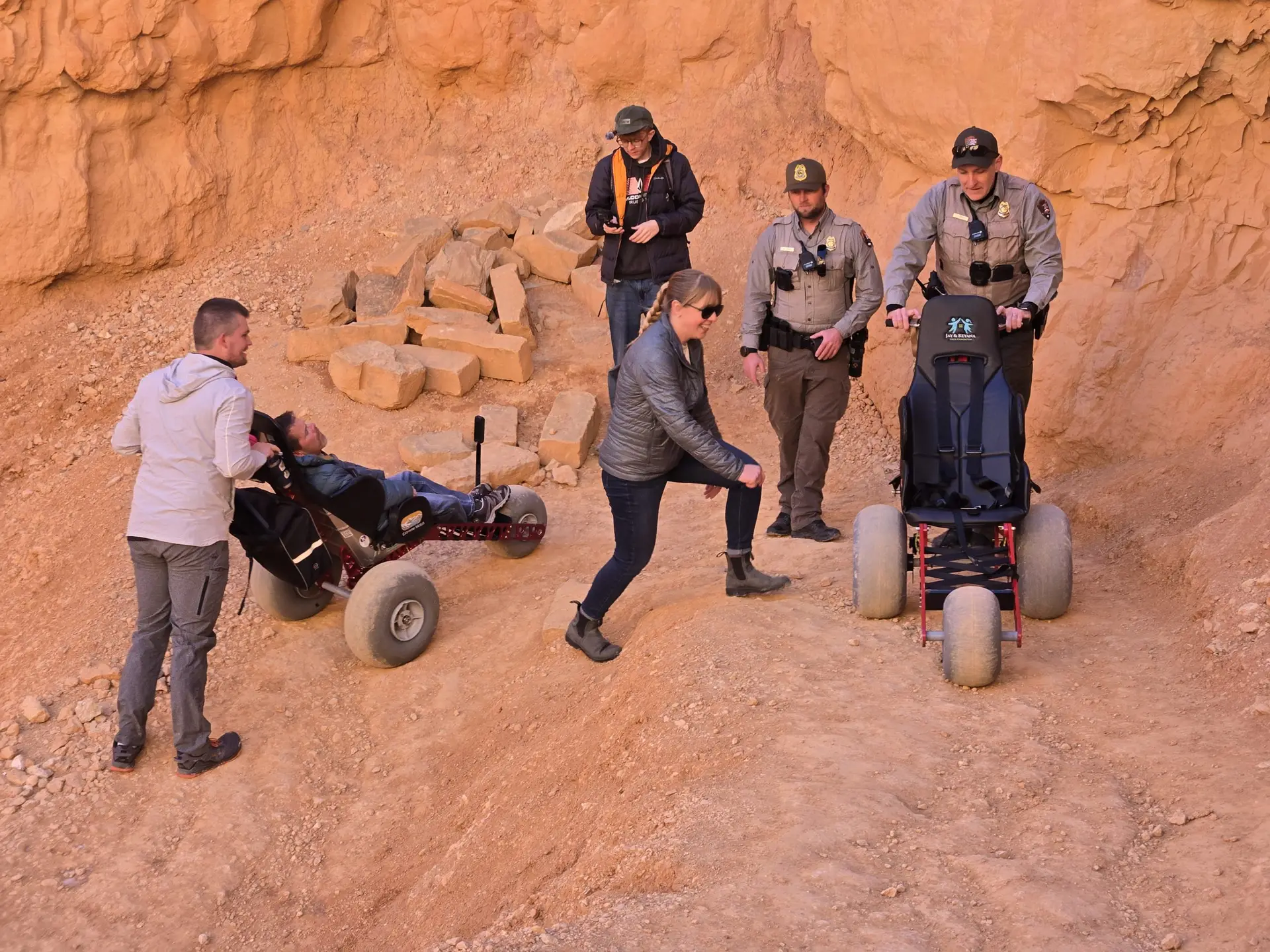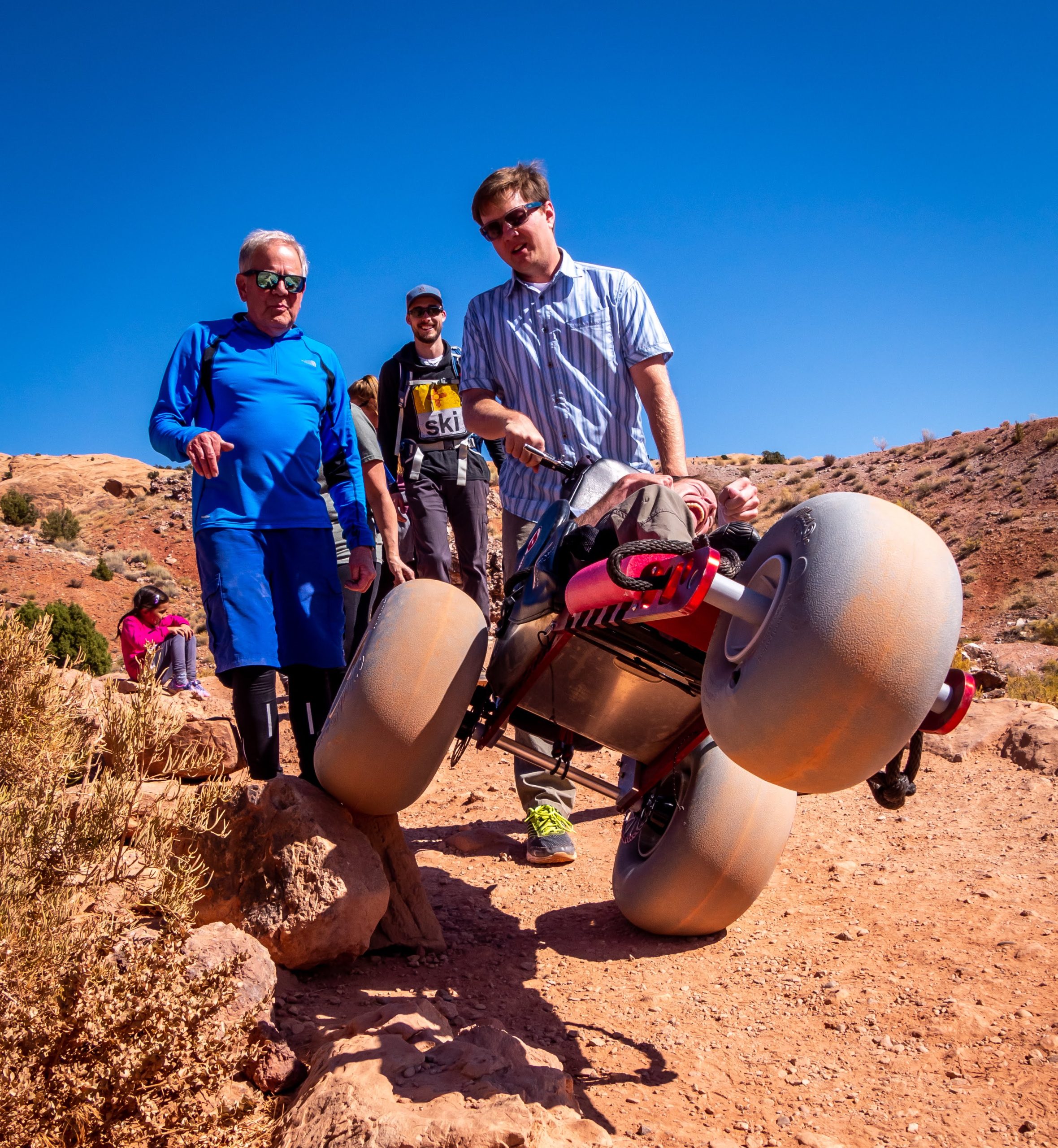7 Eye-Opening Facts About Dystonia and Outdoor Mobility
What is Dystonia?
Dystonia is a neurological movement disorder that causes involuntary muscle contractions, impacting daily life and mobility. Understanding its causes, treatments, and the benefits of outdoor activities can empower individuals and their families to live more fulfilling lives. Here are 7 eye-opening facts about Dystonia and how an all-terrain wheelchair can enhance outdoor experiences.
1. What Causes Dystonia?
Dystonia occurs when the brain misfires signals that control muscle movement, leading to sustained contractions and abnormal postures.
Possible Causes:
- Genetics: Some forms of Dystonia are inherited.
- Neurological Conditions: Parkinson’s disease, brain injury, or stroke.
- Medications: Certain drugs can trigger secondary Dystonia.
- Idiopathic Causes: In many cases, the cause is unknown.
2. How Many People Are Affected by Dystonia?
Dystonia affects approximately 300,000 people in the United States and is the third most common movement disorder after Parkinson’s disease and essential tremor. It can develop at any age and affects both men and women.
3. What Are the Treatments for Dystonia?
While there is no cure for Dystonia, various treatments can help manage symptoms:
- Medications:
- Muscle relaxants like baclofen.
- Anticholinergic drugs to reduce muscle spasms.
- Botox Injections: Weakens overactive muscles to improve movement.
- Physical Therapy: Enhances mobility, flexibility, and strength.
- Deep Brain Stimulation (DBS): An implant that modulates brain signals in severe cases.
- Alternative Therapies: Yoga, acupuncture, or massage may offer relief.
4. How Does Dystonia Affect Families?
Dystonia can impact families emotionally, physically, and financially:
- Emotional Stress: Loved ones may feel helpless watching the condition progress.
- Caregiving Demands: Family members may assist with mobility and daily activities.
- Financial Strain: The cost of treatments, therapies, and adaptive devices can be significant.
- Social Adjustments: Families may need to modify activities and routines to accommodate the individual’s condition.
5. Can Dystonia Require the Use of a Wheelchair?
Yes, in severe cases, Dystonia can cause significant mobility challenges, making a wheelchair necessary for:
- Mobility Support: When walking or standing becomes too difficult.
- Energy Conservation: A wheelchair helps manage fatigue during daily activities.
- Preventing Falls: Reduces the risk of injury from loss of balance or spasms.
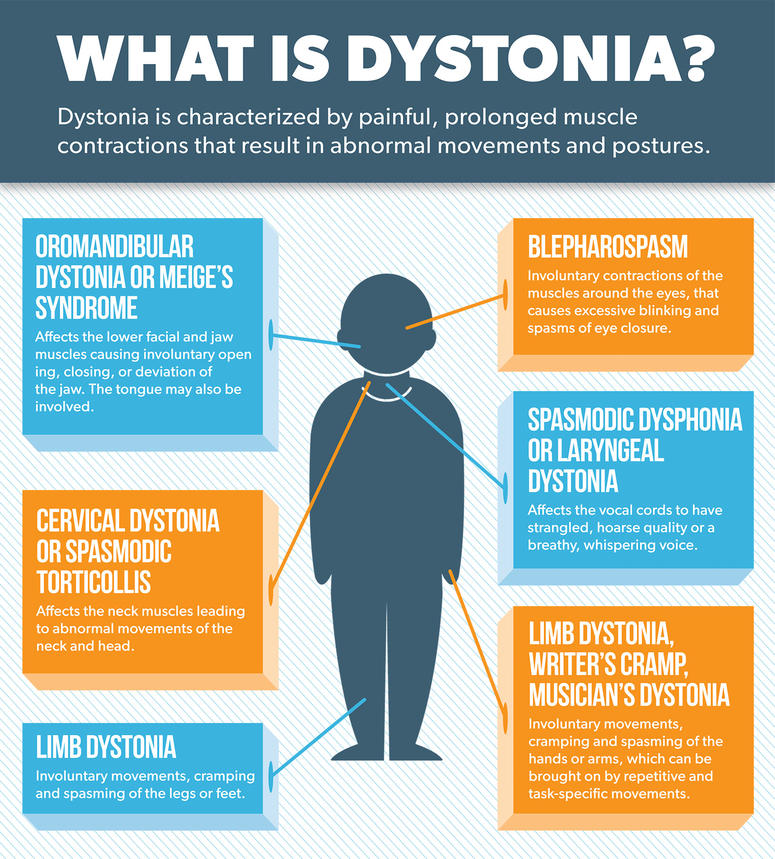
6. Why Is Spending Time Outdoors Important?
Outdoor activities provide vital mental and physical health benefits for individuals with Dystonia:
- Improves Mental Health: Nature reduces stress, anxiety, and depression.
- Encourages Gentle Movement: Light activities like strolling can maintain muscle flexibility and circulation.
- Boosts Mood: Exposure to sunlight increases serotonin, promoting happiness.
- Fosters Social Connection: Parks and outdoor settings encourage interaction with family and friends.
- Offers Emotional Renewal: Being outdoors provides a sense of freedom and relaxation.
7. How Can an All-Terrain Wheelchair Help?
An all-terrain wheelchair allows individuals with Dystonia to explore and enjoy the outdoors safely and comfortably:
- Handles Varied Terrains: Navigates trails, grass, sand, and uneven paths with ease.
- Provides Stability and Comfort: Ergonomic designs and shock-absorbing wheels reduce discomfort and ensure a smooth ride.
- Promotes Independence: Allows users to explore outdoor spaces without relying on caregivers.
- Supports Social Inclusion: Facilitates participation in family outings, picnics, and group activities.
- Builds Confidence: Overcomes physical barriers, fostering a sense of adventure and freedom.
What is the Extreme Motus All-Terrain Wheelchair?
The Extreme Motus All-Terrain Wheelchair is a revolutionary mobility solution designed to empower individuals with limited mobility to explore and enjoy outdoor environments. Unlike traditional wheelchairs, the Extreme Motus model is engineered to navigate rugged and uneven terrains, including dirt trails, sandy beaches, gravel paths, and rocky landscapes. Here’s what makes it unique:
Key Features:
- Durable Build:
- Made with high-quality, lightweight materials to ensure durability and ease of use.
- All-Terrain Capability:
- Oversized, shock-absorbing wheels allow smooth navigation on challenging surfaces.
- Ergonomic Design:
- Comfortable seating and adjustable features ensure a safe and supportive experience for users.
- Enhanced Stability:
- Designed to maintain balance and stability even on steep or uneven terrain.
- Versatility:
- Ideal for activities like hiking, beach outings, and exploring trails, making outdoor adventures accessible.
Who Is It For?
The Extreme Motus wheelchair is perfect for individuals with mobility challenges who want to reclaim their freedom and enjoy nature without limitations. It caters to users of all ages, from children to adults.
Conclusion: Thrive Outdoors with Dystonia
Living with Dystonia presents challenges, but spending time outdoors offers therapeutic benefits that improve both mental and physical well-being. With the help of an all-terrain wheelchair, mobility barriers can be overcome, enabling individuals to reconnect with nature, family, and friends.
Ready to reclaim your freedom? Explore our range of all-terrain wheelchairs designed to empower individuals with Dystonia and other mobility challenges. Start your journey today!
Every year, more families discover the freedom these chairs create—this Black Friday, demand is already building fast. By joining the early-access list, you secure your chance to order before the sale goes public on November 28, 2025.
Since 2019, Sam and Ryan have been demonstrating that nature is wheelchair accessible with the Extreme Motus All Terrain Wheelchair. From National Parks to Skateparks, their adventures prove that a manual off-road wheelchair can offer laughter and joy while navigating diverse terrains.
Join us as we continue to share these inspiring journeys.
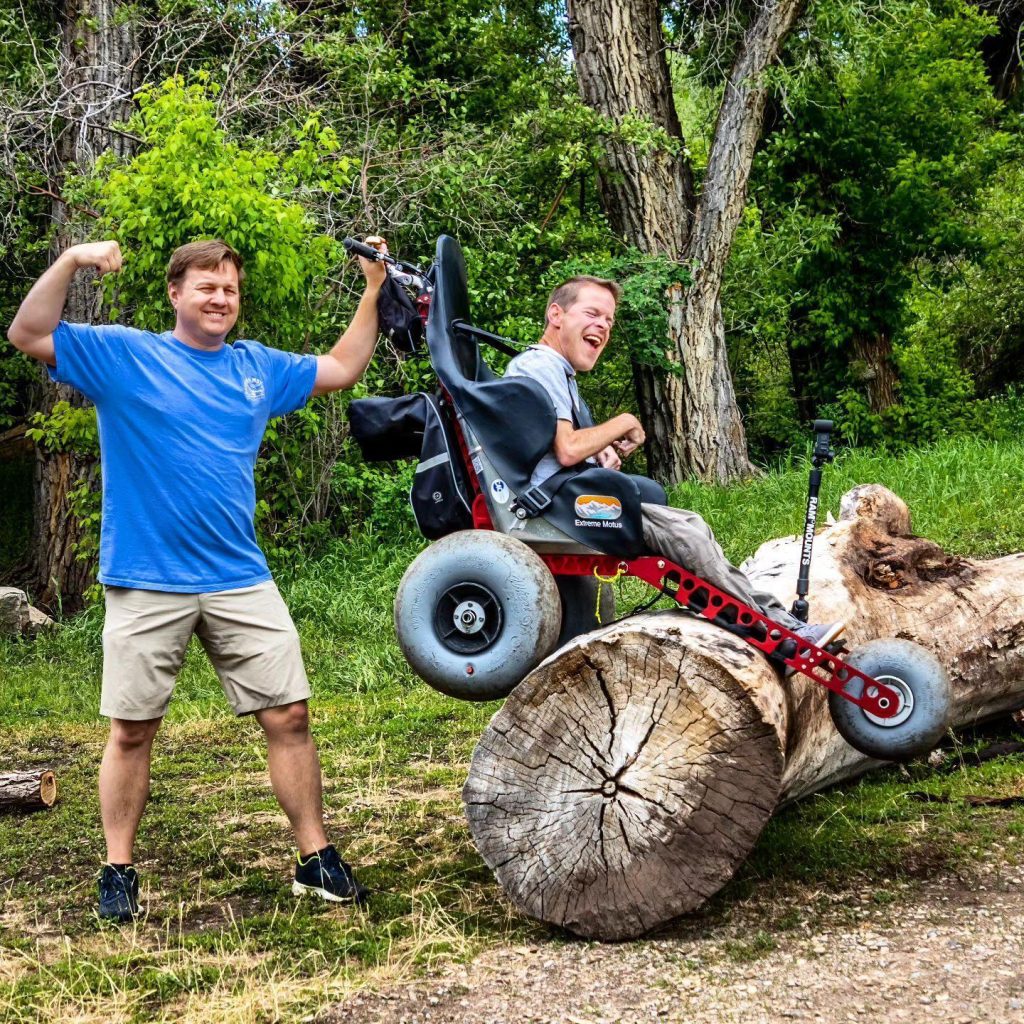
Light, comfortable, and compact, the Extreme Motus glides over sand, rocks, grass, gravel, and even floats in water.
It’s more than a outdoor wheelchair; it’s your ticket to freedom. Embrace the outdoors with confidence, knowing our off-road wheelchair is engineered for durability and ease of use.
Be the first to hear about new gear, upcoming adventures, and exclusive offers. As a welcome gift, enjoy $10 off your first Motus T-Shirt when you subscribe.
By subscribing you agree to receive marketing communications from Extreme Motus, including product updates, promotions, and special offers. I understand I can unsubscribe at any time.

